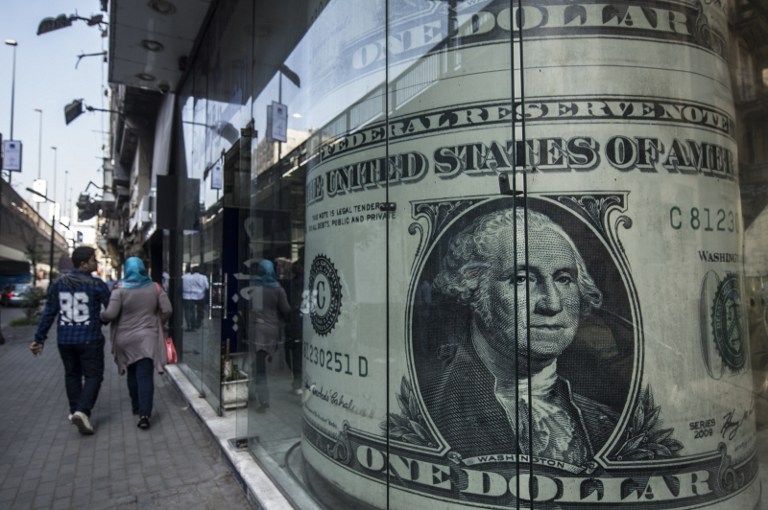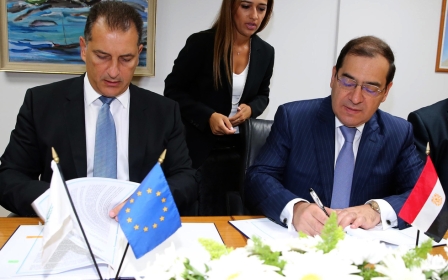Egypt's central bank secures $2 billion ahead of IMF deal

Egypt's central bank said on Thursday it had reached a $2 billion financing agreement with a consortium of international banks, in a deal aimed at boosting foreign reserves amid a major dollar crisis.
Egypt has been negotiating billions of dollars in aid from various lenders to help revive its economy, battered by political and economic upheaval since a 2011 uprising.
The announcement comes a day before the International Monetary Fund board meets to consider a $12 billion loan, which officials say will help ease the economic crisis in Egypt.
That agreement would support an ambitious reform programme that saw the central bank take the dramatic step last week of floating its currency, the pound.
Egypt devalued the pound by about a third last week from its former peg of 8.8 against the dollar and has since allowed it to drift lower. A shortage of dollar liquidity resulted in low volumes and saw the pound weaken to 18 versus the dollar when markets opened on Sunday for the first time since the float.
The central bank said the repurchase agreement announced on Thursday had a maturity of one year, with the banks providing funds against international bonds newly issued by the finance ministry and listed on the Irish Stock Exchange.
"The transaction bolsters the liquidity and size of the international reserves of the central bank," the central bank statement said.
"This transaction complements a series of measures taken recently in order to unleash the vast potential of the Egyptian economy and instil confidence by normalising local market conditions and bolstering economic activity."
"This deal signals a positive monetary-fiscal cooperation and less reliance on foreign support and more on international markets. This is positive for sentiment," said Hany Farahat, senior economist at CI Capital told Reuters.
The finance ministry said it had issued $4 billion of international bonds as a private placement for the central bank on Wednesday.
The placement includes a $1.360bn bond with 4.62 percent interest maturing in December 2017, a $1.320bn bond with 6.75 percent interest maturing in November 2024, and $1.320bn bond with 7 percent interest maturing in November 2028.
Finance Minister Amr Al Garhy had also said earlier this week that Egypt planned to start a roadshow for a $2-$2.5 billion Eurobond issue in late November. But after the private placement, Garhy appeared on Dubai-based Al Arabiya Television to say that the issue could now be postponed.
“We had plans to start [the roadshow] in the last week of this month, but some changes and volatility happened in the markets,” he said. “We are watching closely in order to be sure if we can start in the last week of November or if we will have to - and this is possible - delay.”
The IMF deal and the central bank's repurchasing agreement have raised hopes that fresh inflows would be arriving sooner rather than later to stabilise the currency.
New MEE newsletter: Jerusalem Dispatch
Sign up to get the latest insights and analysis on Israel-Palestine, alongside Turkey Unpacked and other MEE newsletters
Middle East Eye delivers independent and unrivalled coverage and analysis of the Middle East, North Africa and beyond. To learn more about republishing this content and the associated fees, please fill out this form. More about MEE can be found here.




